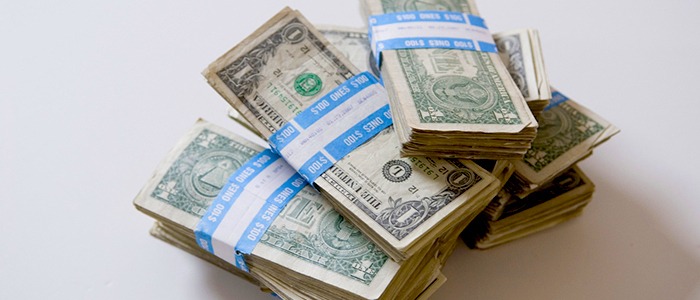Master the Conditional Tense in French in a Few Easy Steps
Je voudrais un café s’il vous plaît.
I would like a coffee please.

This sentence in French uses the conditional tense. Voudrais is the conditional tense of the verb vouloir (to want). Aside from learning how to order food and drinks from a menu, there are many benefits to learning the conditional tense in French. Learning the conditional tense will certainly increase your fluency in the language. It will also help you to understand more complex scenarios and sequences of events which depend on each other to occur.
What is the Conditional Tense in French?
The conditional tense is used to talk about things that could happen. Usually there is a set of circumstances that have to occur in order for a conditional event to take place. In English we would use the word “would” to form the conditional tense. Here are a couple examples of the conditional tense in English:
I would help her with organizing the school play if she were to ask.
You would be surprised if you heard the news.
Forming the conditional tense in French is a bit more challenging than this. One way to make it easier is to review this post about the future tense in French first so that you know the future tense stems. This is because you will need to know the future tense stem of the verb you wish to use in the conditional as well as the specific ending for each subject.
Forming the Conditional Tense in French
The conditional tense is formed by adding the imperfect tense (l’imparfait) endings to the future stem of the verb. Here is an example for the verb donner (to give):

Future stem: donner
Conditional form:
Je donnerais – I would give
Tu donnerais – You would give
Il/Elle/On donnerait – He/She/One would give
Nous donnerions – We would give
Vous donneriez – You (plural) would give
Ils/ Elles donneraient – They would give
For most verbs the future stem is the infinitive form minus the ending -e. The future stem of the verb boire (to drink) is boir. The future stem of the verb vendre (to sell) is vendr. There are specific verbs which have irregular future stems. Here are a few examples using irregular future stems.
The future stem of the verb avoir (to have) is aur.
Example: Il aurait téléphoné sa mère, mais elle voyage en Europe cette semaine.
He would have called his mother, but she is travelling in Europe this week.

The future stem of the verb être (to be) is ser.
Example: Je serais content de rester chez mon ami.
I would be happy to stay with my friend.
The future stem of the verb aller (to go) is ir.
Example: Si nous avons besoin d’étudier nous irions à la bibliothèque
If we need to study we would go to the library.

If…Then Sentences
A lot of the time the conditional tense is used in if…then constructs. In an if…then construct if something were to happen, then there would be an action as a result of the first event taking place. For the if clause, only these tenses are used in French: the present, the past tense, the imperfect (l’imparfait) and the past perfect tense (plus que parfait). For the then clause, the conditional tense is used. Here is an example of an if…then sentence:
Il mangerait s’il avait faim.
He would eat if he were hungry.
Using if…then constructs in your conversational French will take some practice, but it is well worth it. You will be able to describe events, wishes, desires and consequences in a clear and precise way.
If I had a Million Dollars: A Conditional Tense Writing Activity

What would you do with a million dollars? Fly around the world to your favorite travel destinations? Buy a yacht? Help the homeless? A fun way to help you to practice the conditional tense in French is to imagine that you have won the lottery. Just imagine all of the things you could do. Would you change your lifestyle completely? Would you quit your job? Would you save it wisely or would you spend it all at once? Using this scenario you can come up with many examples using the conditional tense. Compare your answers with a friend’s in order to really get a conversation going in French.
Si je gagnais un million dollars, j’achèterais un grand bateau.
If I won a million dollars, I would buy a big boat.
Si j’étais riche, je voyagerais autour du monde.
If I were rich, I would travel around the world.
Why Learn the Conditional Tense in French?
As your vocabulary expands in French you will want to express yourself in more complex ways. The conditional tense in French allows you to discuss topics that depend on a sequence of events. Another use for the conditional tense is expressing wishes or desires. It allows you to make more formal statements and requests as well, such as pourriez-vous? (could you?) or voudriez-vous (would you?). Learning the conditional tense will ultimately help you to increase your fluency and comprehension in the language. Not to mention it will also help you to sound polite and sophisticated!
Learn French on LingQ!
LingQ is the best way to learn French online because it lets you learn from content you enjoy! You can import videos, podcasts, and much more and turn them into interactive lessons. Keep all your favourite language content stored in one place, easily look up new words, save vocabulary, and review. Check out our guide to importing content into LingQ for more information.
LingQ is available for desktop as well as Android and iOS. Gain access to thousands of hours of audio and transcripts and begin your journey to fluency today.


